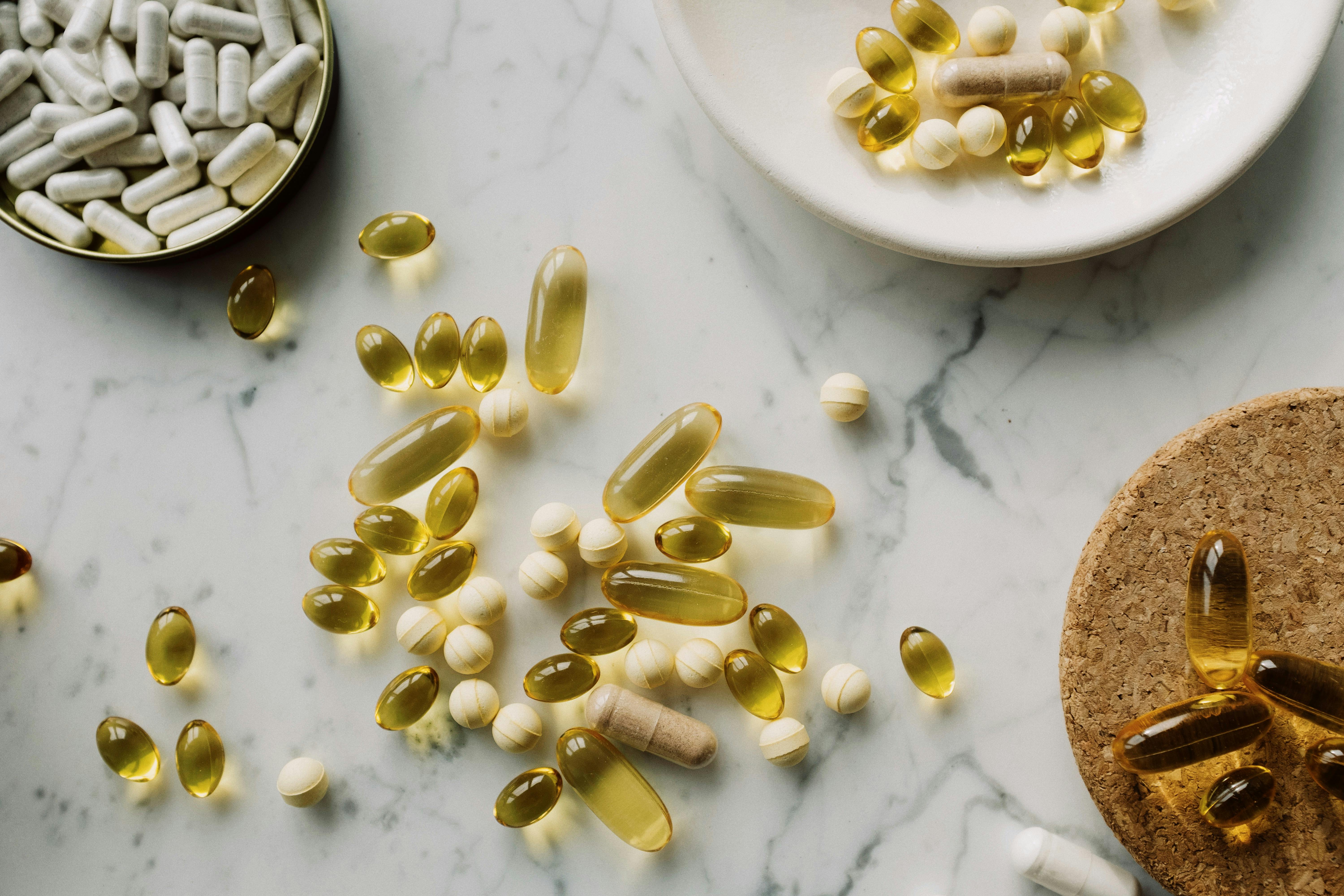Looking to achieve hormonal balance? Look no further! In this article, we will reveal the top 5 supplements that can work wonders in promoting hormonal balance. Whether you’re experiencing mood swings, irregular periods, or pesky acne, these supplements may just be the game-changers you’ve been searching for. Say goodbye to hormone-related woes and hello to a balanced and happy you!
Vitamin D
Importance of Vitamin D for Hormone Balance
Vitamin D plays a crucial role in maintaining hormone balance in the body. It is essential for the production of various hormones, including testosterone, estrogen, and progesterone. Without adequate levels of vitamin D, the body may struggle to regulate hormone production effectively. Vitamin D also helps in the absorption of calcium, which is important for bone health and overall hormonal function.
Sources of Vitamin D
The primary source of vitamin D is sunlight. When your skin is exposed to sunlight, it produces vitamin D naturally. However, it’s important to note that factors such as geographical location, time of year, and skin pigmentation can affect the amount of vitamin D your body can produce from sunlight alone. Therefore, it is recommended to include dietary sources of vitamin D as well. Foods rich in vitamin D include fatty fish like salmon and mackerel, fortified dairy products, egg yolks, and mushrooms.
Recommended Dosage
The recommended daily dosage of vitamin D varies depending on age and individual health requirements. On average, adults should aim for 600-800 international units (IU) of vitamin D per day. However, it is always best to consult with a healthcare provider to determine the appropriate dosage for your specific needs.
Omega-3 Fatty Acids
Role of Omega-3 Fatty Acids in Hormonal Balance
Omega-3 fatty acids are essential fats that play a vital role in maintaining hormonal balance in the body. They are particularly important for reducing inflammation, supporting brain health, and aiding in the production of hormones. Omega-3 fatty acids are known to improve mood, decrease menstrual pain, and regulate hormone levels, making them an excellent supplement for hormonal balance.
Sources of Omega-3 Fatty Acids
The best sources of omega-3 fatty acids are fatty fish like salmon, sardines, and trout. Plant-based sources include flaxseeds, chia seeds, and walnuts. If incorporating these foods into your diet is challenging, you can opt for omega-3 supplements derived from fish oil or algae.
Recommended Dosage
The recommended daily dosage of omega-3 fatty acids varies, but most health experts suggest aiming for a minimum of 250-500 milligrams of combined EPA (eicosapentaenoic acid) and DHA (docosahexaenoic acid). However, it is always advisable to consult with a healthcare professional to determine the most suitable dosage for your individual needs.

Magnesium
Benefits of Magnesium for Hormonal Balance
Magnesium is a mineral that plays a significant role in hormonal balance. It helps regulate insulin levels, which is crucial for managing blood sugar and preventing hormonal imbalances. Additionally, magnesium supports the production and activation of several hormones, including estrogen and progesterone. It can also help alleviate symptoms associated with PMS and menopause.
Sources of Magnesium
Magnesium can be found in various food sources, including dark leafy greens like spinach and kale, nuts and seeds, legumes, whole grains, and fish. If you have difficulty meeting your magnesium needs through diet alone, magnesium supplements are available in various forms such as magnesium citrate, magnesium oxide, and magnesium glycinate.
Recommended Dosage
The recommended daily dosage of magnesium for adults is typically around 300-400 milligrams. However, individual requirements may vary, so it is advisable to consult with a healthcare professional to determine the appropriate dosage for you.
Ashwagandha
Effects of Ashwagandha on Hormonal Balance
Ashwagandha is a popular herb known for its adaptogenic properties, meaning it helps the body adapt to stress and restore balance. When it comes to hormonal balance, ashwagandha has been found to regulate cortisol levels, reduce stress, and support thyroid function. By reducing cortisol, ashwagandha indirectly helps in balancing other hormones in the body.
Sources of Ashwagandha
Ashwagandha is available in various forms, including capsules, powders, and tinctures. It can be found in health food stores, pharmacies, or purchased online from reputable sources.
Recommended Dosage
The recommended dosage of ashwagandha varies depending on the individual and the specific product being used. However, a common dosage range is typically 300-600 milligrams per day. It is advisable to follow the instructions provided on the product label or consult with a healthcare professional for personalized dosage guidance.

DIM (Diindolylmethane)
Role of DIM in Estrogen Metabolism
DIM, short for diindolylmethane, is a compound derived from cruciferous vegetables like broccoli and cabbage. It plays a crucial role in estrogen metabolism and has been found to support hormonal balance, particularly in women. DIM helps promote the conversion of estrogen into its beneficial and less harmful forms, which can help reduce the risk of estrogen dominance and related hormonal imbalances.
Sources of DIM
Since DIM is naturally produced in small amounts from the digestion of cruciferous vegetables, consuming these vegetables regularly can provide a dietary source of DIM. However, DIM supplements are also available and can be found in health food stores or online.
Recommended Dosage
The optimal dosage of DIM may vary depending on individual circumstances, including age, sex, and overall health. Typical recommended dosages range from 100-300 milligrams per day for general hormonal support. However, it is always advisable to consult with a healthcare professional to determine the most appropriate dosage for your specific needs.
Vitamin B6
Importance of Vitamin B6 for Hormonal Balance
Vitamin B6 is a water-soluble vitamin that plays a crucial role in hormonal balance. It is involved in the synthesis and metabolism of various hormones, including estrogen, progesterone, and testosterone. Vitamin B6 also supports neurotransmitter production, which can help regulate mood and alleviate symptoms of hormonal imbalances such as PMS.
Sources of Vitamin B6
Good dietary sources of vitamin B6 include poultry, fish, organ meats, bananas, avocados, nuts, and seeds. It is important to note that vitamin B6 is sensitive to heat and can be easily destroyed during cooking, so it’s best to consume vitamin B6-rich foods in their raw or lightly cooked forms whenever possible.
Recommended Dosage
The recommended daily dosage of vitamin B6 varies depending on age and individual health requirements. For most adults, a dosage of 1.3-1.7 milligrams per day is recommended. However, it is always best to consult with a healthcare provider to determine the appropriate dosage for your specific needs.

Zinc
Benefits of Zinc for Hormonal Balance
Zinc is an essential mineral that plays a vital role in hormonal balance. It is involved in the synthesis, regulation, and metabolism of various hormones, including insulin, testosterone, and estrogen. Zinc also supports the immune system, promotes healthy fertility, and aids in the production of enzymes necessary for hormone synthesis.
Sources of Zinc
Zinc can be found in a variety of food sources, including oysters, shellfish, poultry, red meat, legumes, nuts, seeds, and whole grains. If dietary intake is insufficient, zinc supplements are available in various forms such as zinc citrate, zinc gluconate, or zinc picolinate.
Recommended Dosage
The recommended daily dosage of zinc for adults is typically around 8-11 milligrams for women and 11-15 milligrams for men. However, individual requirements may vary, so it is advisable to consult with a healthcare professional to determine the appropriate dosage for you.
Evening Primrose Oil
Effects of Evening Primrose Oil on Hormonal Health
Evening primrose oil is derived from the seeds of the evening primrose plant and is rich in gamma-linolenic acid (GLA), an omega-6 fatty acid. GLA has been shown to support hormonal health by reducing inflammation, regulating menstrual cycles, and alleviating symptoms associated with PMS and menopause.
Sources of Evening Primrose Oil
Evening primrose oil can be found in supplement form in health food stores or online. It is important to choose a reputable brand and follow the recommended dosage instructions.
Recommended Dosage
The recommended dosage of evening primrose oil may vary depending on individual needs. However, a common dosage range is typically 500-1,000 milligrams per day. It is advisable to consult with a healthcare professional for personalized dosage guidance.
Probiotics
Role of Probiotics in Hormone Regulation
Probiotics are live bacteria and yeasts that provide numerous health benefits when consumed. They play a critical role in maintaining a healthy gut microbiome, which is closely linked to hormonal balance. Probiotics help support the metabolism and elimination of hormones, enhance nutrient absorption, and regulate immune and inflammatory responses, all of which contribute to overall hormone regulation.
Sources of Probiotics
Probiotics can be found in fermented foods such as yogurt, kefir, sauerkraut, kimchi, and kombucha. Additionally, probiotic supplements are widely available in various forms such as capsules, powders, and liquids.
Recommended Dosage
The optimal dosage of probiotics may vary depending on the specific strains and concentration of bacteria in the product. It is advisable to follow the instructions provided on the product label or consult with a healthcare professional for personalized dosage guidance.
Turmeric
Effects of Turmeric on Hormonal Balance
Turmeric is a vibrant yellow spice commonly used in Indian cuisine that contains an active compound called curcumin. Curcumin possesses anti-inflammatory properties and acts as an antioxidant, making it beneficial for supporting hormonal balance. Turmeric has also been found to help regulate insulin levels, support thyroid health, and reduce inflammation associated with hormonal imbalances.
Sources of Turmeric
Turmeric can be used in various forms, including fresh turmeric root, powdered turmeric, or turmeric supplements. It is readily available in grocery stores and can be incorporated into cooking, teas, or smoothies to reap its hormonal balancing benefits.
Recommended Dosage
The recommended dosage of turmeric or curcumin supplements can vary depending on the concentration of the active compound. Standard doses typically range from 400-600 milligrams of curcumin per day. However, it is always advisable to consult with a healthcare professional for personalized dosage guidance.
In conclusion, maintaining hormonal balance is essential for overall health and well-being. While these supplements can be beneficial in supporting hormonal balance, it is important to remember that everyone’s body is unique. Therefore, it is recommended to consult with a healthcare professional before starting any new dietary supplements to determine the most appropriate dosage and ensure they are suitable for your individual needs. By combining the power of these supplements with a healthy lifestyle, regular exercise, and a balanced diet, you can optimize your hormonal balance and promote optimal wellness.